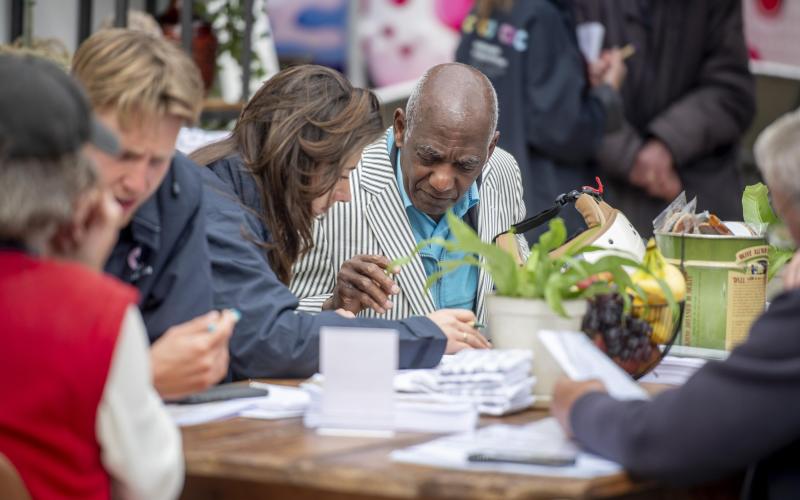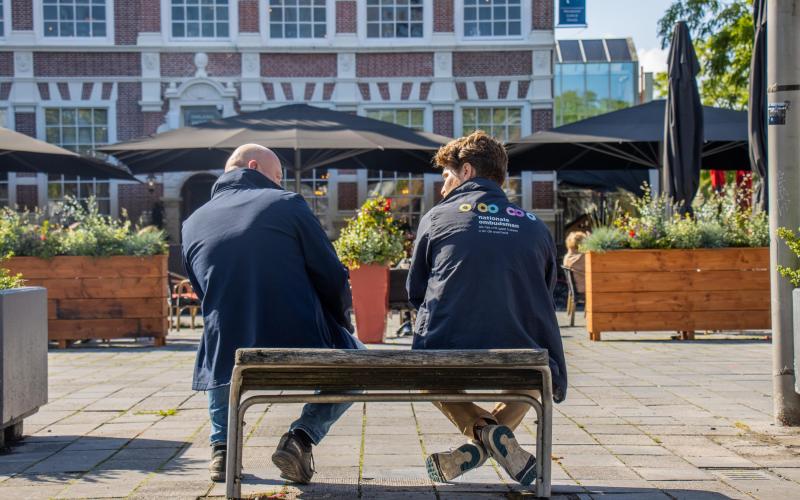
The Dutch National Ombudsman, the Ombudsman for Children and the Ombudsman for Veterans today present their 2022 Annual Report to the House of Representatives: Time for the citizen. In it, they call on the government to listen to citizens more often, sooner and to better effect. Despite having seen some positive examples from the government, the ombudsmen continue to take a critical view, particularly with regard to the influence and control that citizens currently have over the work of the government.
National Ombudsman, Reinier van Zutphen: "Participation can only be successful if people actually have influence and control. We continue to be critical in cases where participation appears to be being used as a sticking plaster for an inadequate service provided by the government. Besides, citizens are only truly able to participate if certain conditions are met first. This includes having sufficient money to survive. People with financial concerns have less freedom to participate."
Uncertain period
In the annual report, the ombudsmen review a year of uncertainty, with Russia’s invasion of Ukraine, increasing energy prices and sky-high inflation levels. Some 90,000 Ukrainians fled to the Netherlands, placing additional pressure on existing asylum and reception facilities. This was yet another problem on top of other major issues, including housing shortages, the climate transition, the nitrogen problem, issues in juvenile care and the complex processes of redress in the allowances scandal, gas exploration in Groningen and flooding in Limburg. They note that the government needs to improve the way it listens to citizens in its approach to these problems. "We receive regular reports from citizens who feel they are not being heard or taken seriously. Before even starting with solutions, the government would be well advised to engage in dialogue more frequently with citizens to discuss the necessary action. What we need is a government that listens and is realistic about the efforts it is willing and able to make, without making promises it cannot meet."
From equality to equal treatment
In other words, it is time to stop talking about citizens and children and start talking with them instead. In 2022, the ombudsmen also saw some good examples, of a government actively engaging in conversation with citizens or even approaching them to draw attention to provisions to which they are entitled. "There is no lack of goodwill to resolve problems. But it needs to be done with purpose, care and creativity.” The ombudsmen also highlight the tendency to resort to increased regulation and far-reaching juridification. "The government strives to achieve equal rights and equal treatment for citizens. And, of course, the minimum that the government does must be the same for every citizen. Beyond that, there can be differences, provided that they can be properly explained." In the last year, the ombudsman also saw the strengthening of citizens’ legal status as another example of this increasing juridification. For example, in the wake of the allowances scandal, citizens were given increased access to legal aid. "This was all done with the very best intentions. But citizens should not have to resort to taking legal action against the government. This shows that, in far too many cases, the government is opposing citizens rather than standing alongside them."
Time for the citizen
Last year saw the ombudsmen call for increased speed across a range of key areas. "We are continuing to do this, because too many citizens are still waiting too long for their problems to be resolved." According to the ombudsmen, in its efforts to resolve problems, the government needs to quickly engage in discussion with citizens and acknowledge that mistakes have been made. After that, however, they need to take the time to stand alongside people in order to reach a well-considered solution, based on mutual agreement. "In practice, this can result in surprisingly simple solutions, that not only bring about financial redress, but also emotional redress. It is time for the citizen.”
Page 43 of the Annual Report 2022 erroneously states that the Dutch National Ombudsman received a total of 80 complaints from citizens from the Caribbean Netherlands in 2022. This statement is incorrect. The actual number of complaints is 198. The correct figure is given in the summaries of the Annual Report.
